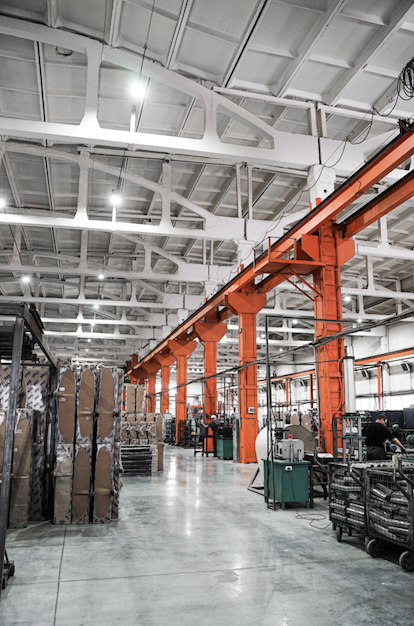Africa Manufacturing Sector

By Amir Jones
After the cooperation with the different manufacturers Amir Jones decided that field service engineering services are efficient for the nowadays industry. Moreover, it is very interesting to write about it. So, he helps to clarify with the basic principles and details of the process in such a way today, enjoying the process of writing and assisting people.
Africa is a continent full of possibilities. For the last decades trade development and direct foreign investments have finally led to a long-awaited manufacturing renaissance in the region.
The African continental free trade zone became operational completely in 2021, which hastened the progress in the manufacturing sector. This experience became a significant step towards regional integration and unification of the entire continent.
Countries gained an opportunity to secure green field investments aimed at export, which is essential for further industrialization and modernization of various areas. Meanwhile differences in the level of productive capacity and the continent’s competitiveness persisted.
The role of countries in Africa’s industrial development
According to the research on The Conversation site based on the study of National statistics, three-quarters of the region’s GDP comes from 18 countries in sub-Saharan Africa: South Africa, Ethiopia, Nigeria, Kenya and Mauritius.
Nowadays there are about 90 million small and medium businesses (SMB), 45 million of which are located in Nigeria, that is why this country plays a leading role on the market.
From about 2010 production has begun to expand in Ghana, while employment has been steadily increasing in Rwanda since 2000th. Opening the first Volkswagen auto assembly plant in 2018 is a vivid example of Rwanda’s industrialisation.
Such trends are evident throughout the region, except some countries (e.g, Mauritius), where industrial capacities continue to decline.
Referring to the already mentioned research, published in The Conversation, it should be noted that average employment interest of African countries was at 7,2% from 1990 to 2010, but increased to 8,4% by 2018. This is not too much in comparison to the countries of Asia and Latin America, but the positive dynamics is obvious.
Influence of large and small manufacturing companies
There is employment growth in the manufacturing industry in the countries in sub-Saharan Africa, but productivity indicators remain the same. Thus, such dynamics is related directly to the contribution of large and small enterprises in the development of the manufacturing sector. Let’s take a closer look at this point.
Production capacity of large enterprises is higher in comparison to the small ones, because of modernisation and scale of operation: they produce more goods at rather low cost.
Meanwhile small companies are considerably supporting Africa’s manufacturing industry because they employ workers for production of food, clothing, wood products and other goods targeted for domestic consumers.
That differs African countries from production expertise of other regions, in particular — East Asia, which organised its economic model based on export.
Yet another factor is related to the transfer of production from China to Ethiopia in order to reduce its cost (by reducing the wages of workers). It is difficult to say how much this decision influenced the industrialization and development of Africa as a whole. On the other hand, the growth of industry in the region was associated with serving the domestic markets rather than external, export ones. That is why it can conclude that it did not depend on the demand of other countries.
Active implementation of the online technologies, as well as the digitalization of economic systems also influences the development of the region. For instance, the fseXpert platform allowing customers to find and contact technical specialists quickly, can be a vivid example of it. Thanks to such platforms technologists, engineers and other specialists got a great and simple opportunity to increase their profit without changing the job place. Moreover, the clients are happy to have the possibility to organise the manufacturing process quickly.
African continental free trade zone encourages the market of industrial commodities, which contributes to the gradual revival of production in the region.
How the pandemic has affected Africa?
COVID-19 pandemic had a significant impact on the world market and caused major damage to the economy, which could not only affect Africa. After rapid growth in 2019, the economic recession of 2,6% was in the countries in sub-Saharan Africa.
The areas of tourism and trade suffered the most because their opportunities were seriously restricted after the implementation of lockdown in many countries. Education also experienced great losses — schools and other educational institutions had to close and to start distance education.
However, Africa’s manufacturing sector growth rates didn’t change so much, since their growth was associated with servicing the domestic market, rather than export. As for the external market, the results of the study show that export of commodities faced more serious problems than the production. The fall in oil prices in 2020 could be provided as an example. Though its price recovered over time.
According to the experts’ forecast Africa’s manufacturing sector can reach 666,4 billion dollars by 2030, which is 200 billion dollars more than in 2015.
The prospects for economic recovery are related directly to whether African countries would be able to expand and move production beyond their domestic markets, introduce reforms aimed at creating a market environment and improve the investment climate.
About the author Amir Jones
After the cooperation with the different manufacturers Amir Jones decided that field service engineering services are efficient for the nowadays industry. Moreover, it is very interesting to write about it. So, he helps to clarify with the basic principles and details of the process in such a way today, enjoying the process of writing and assisting people.





